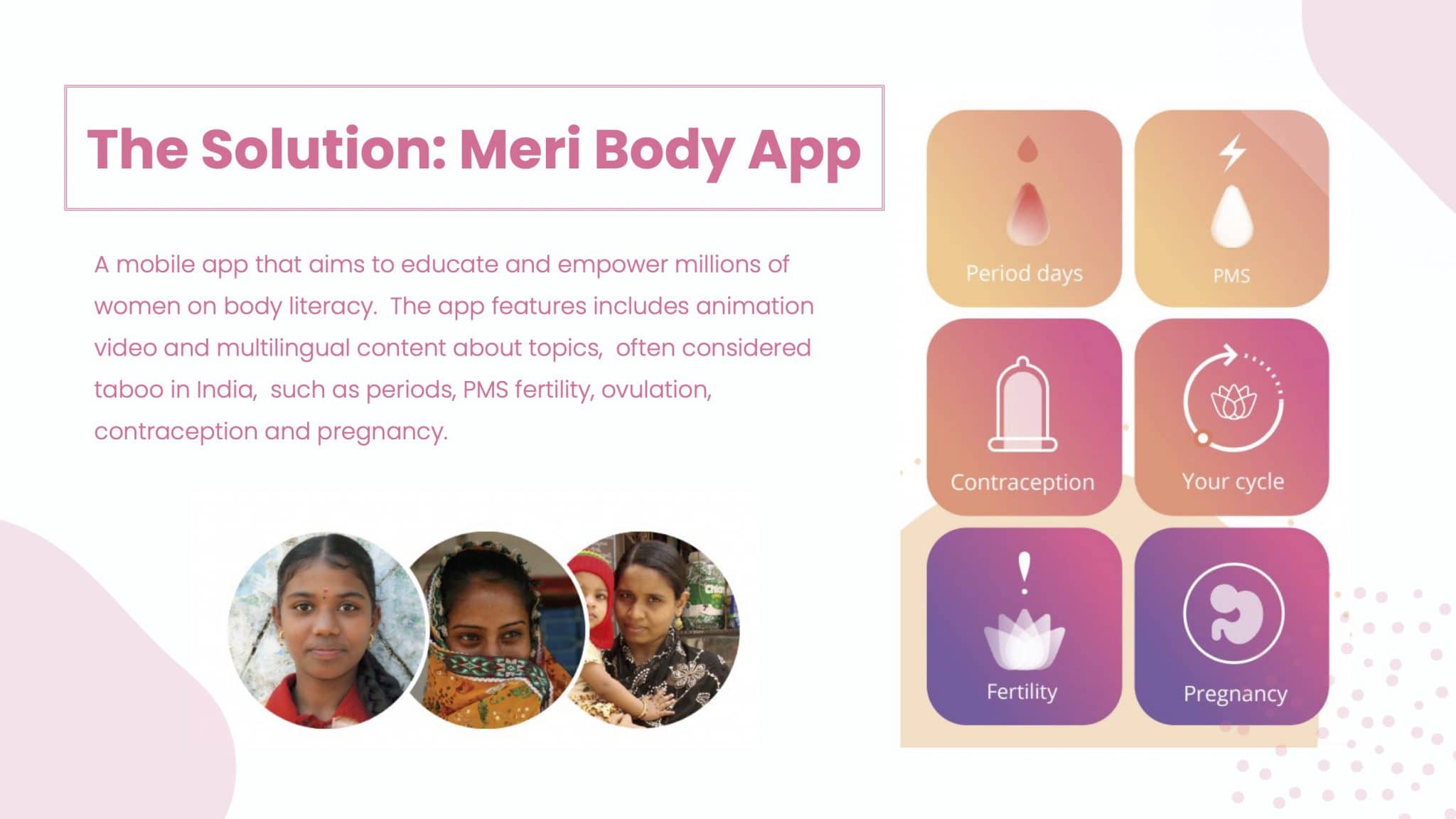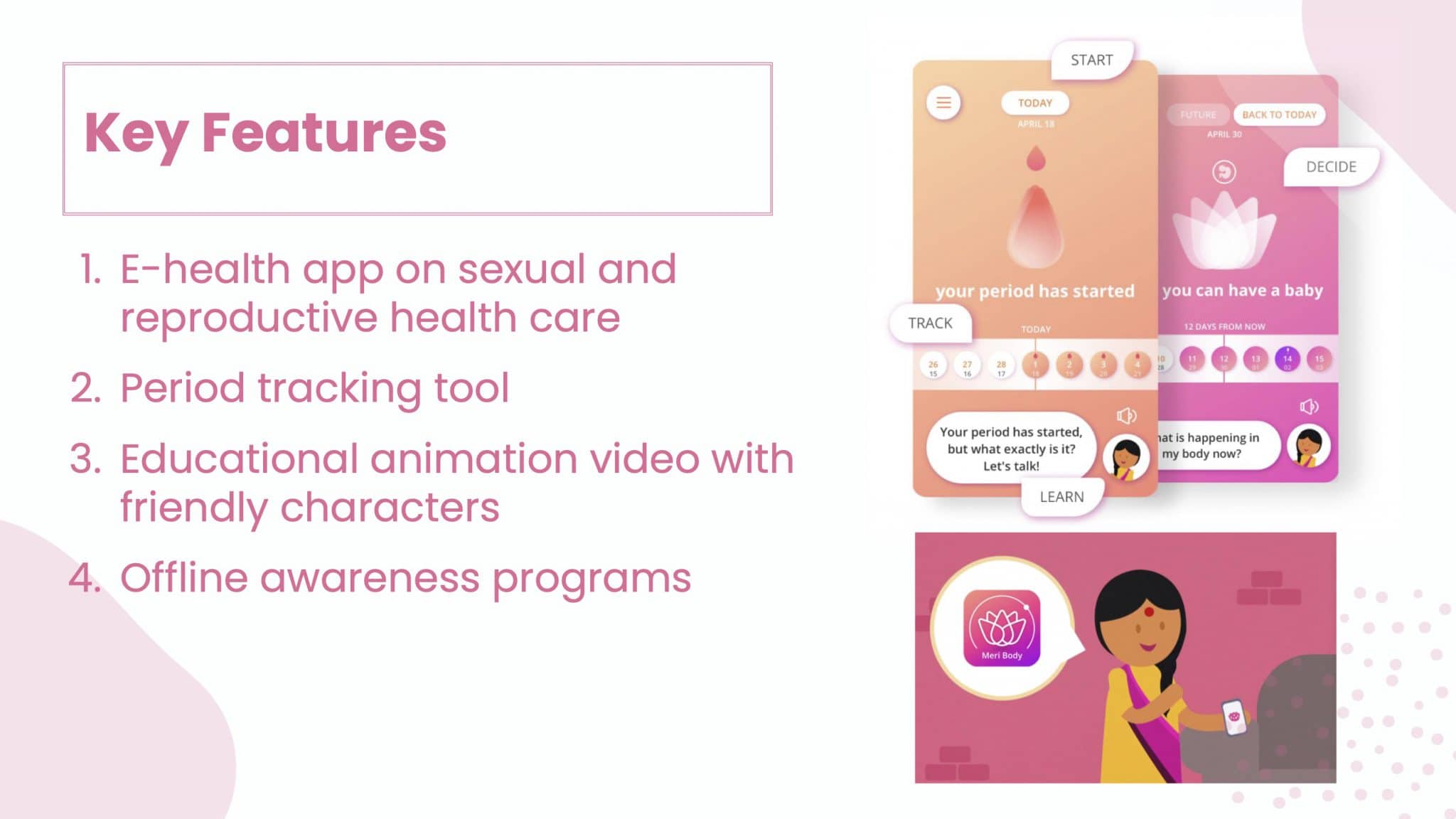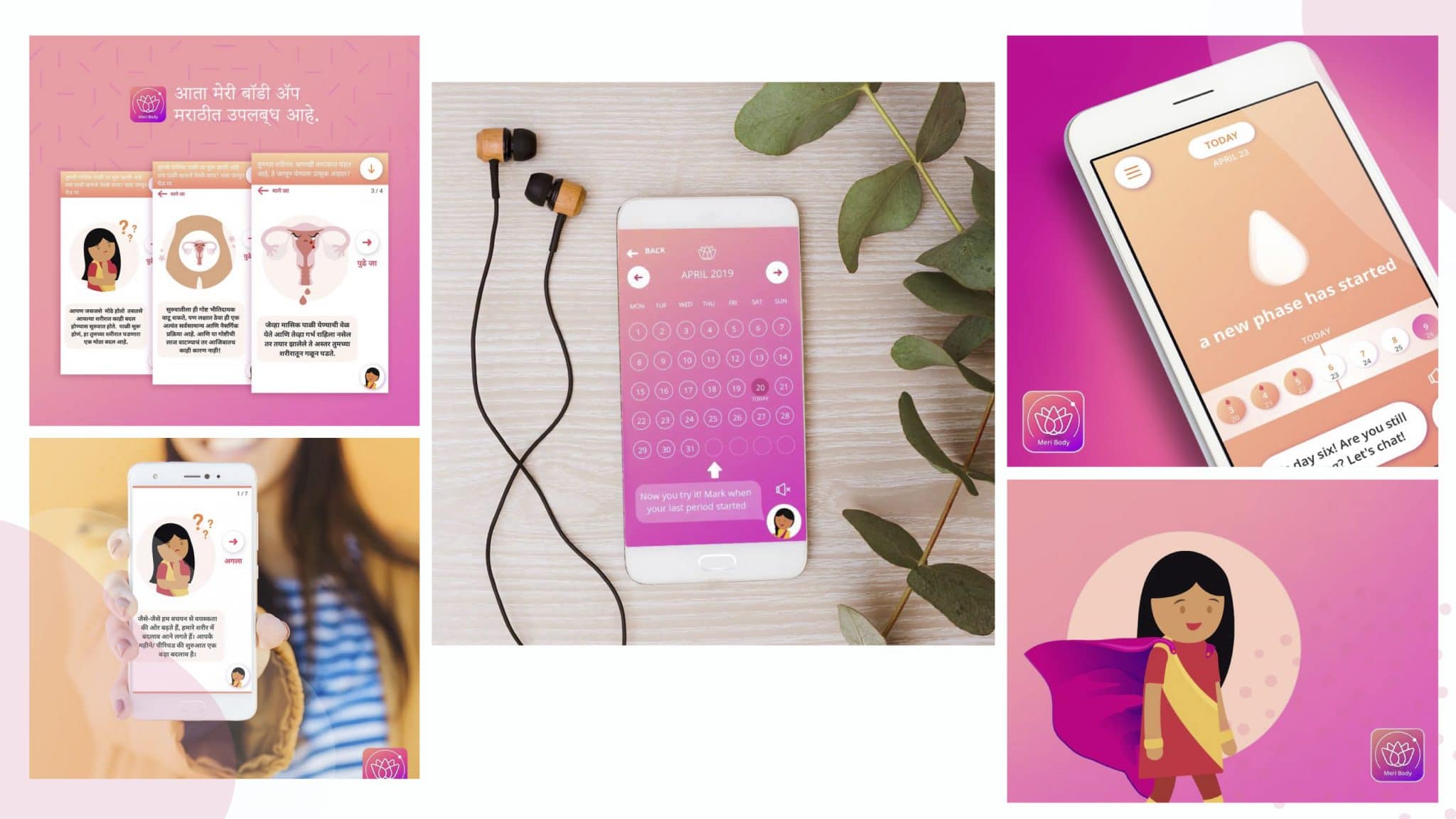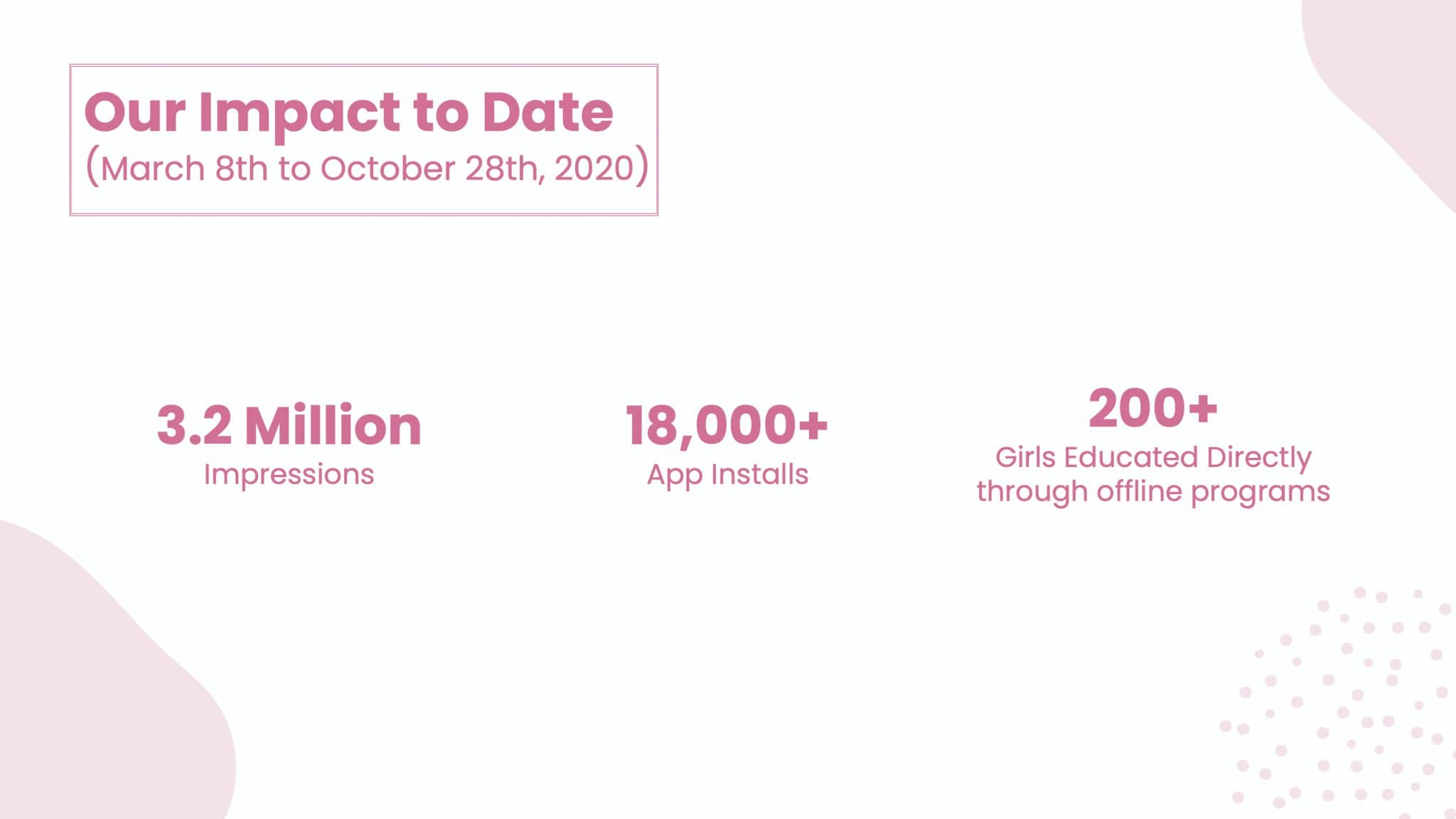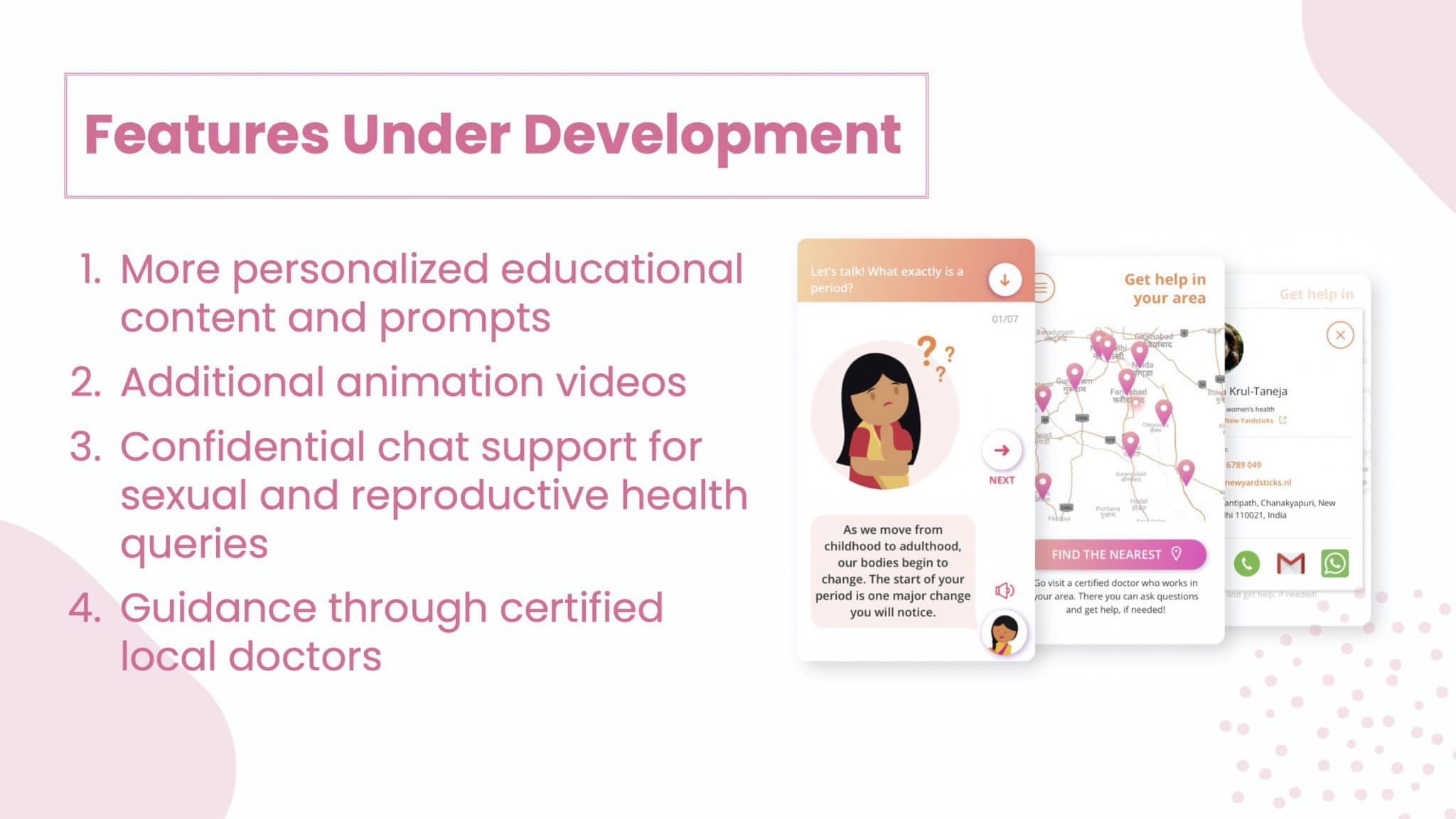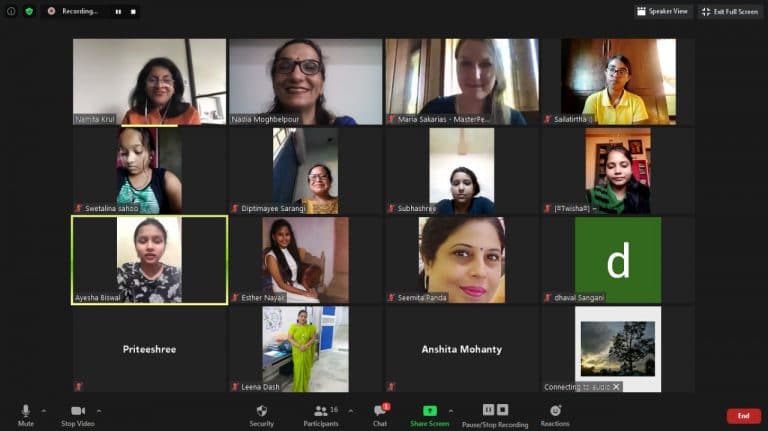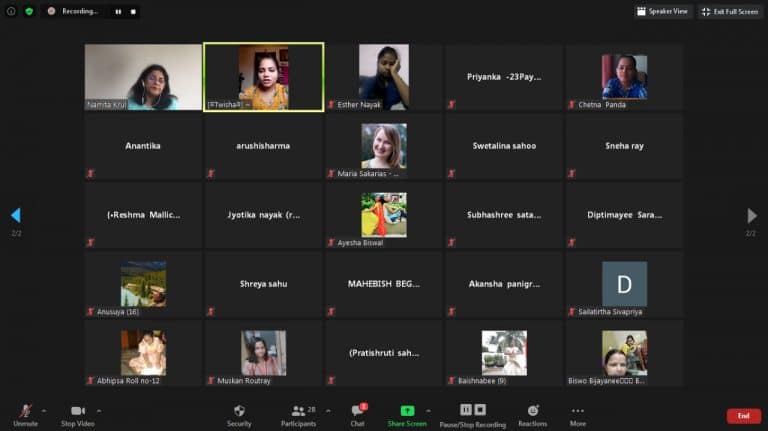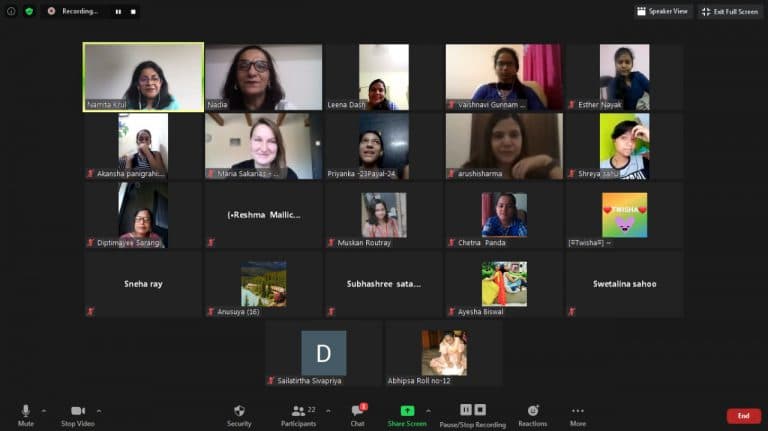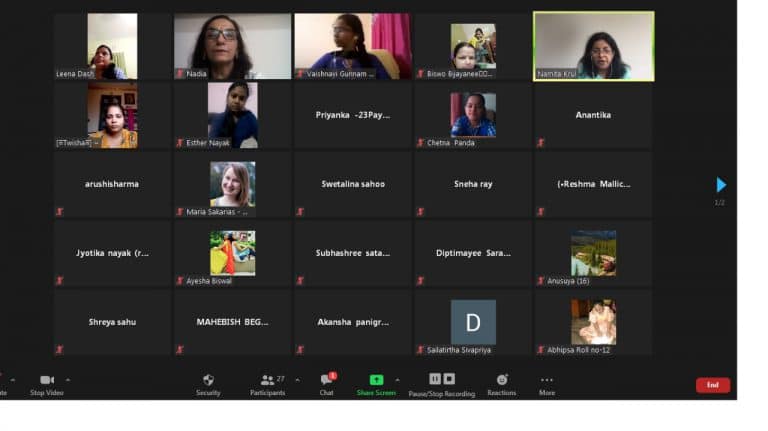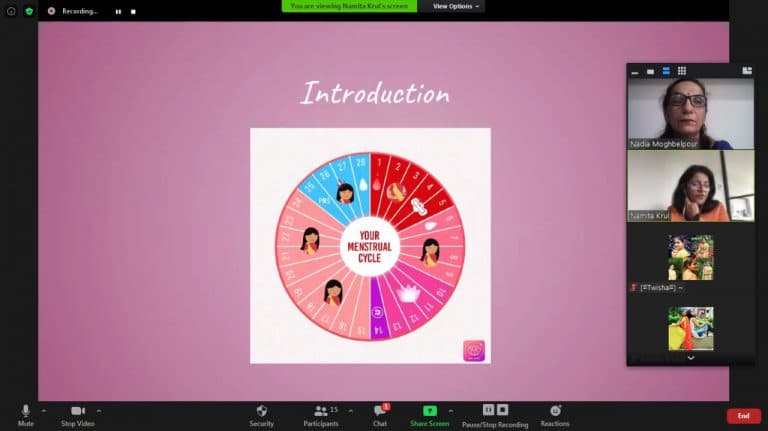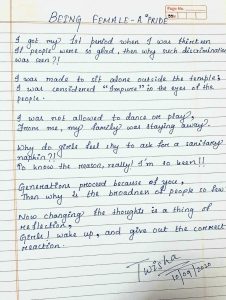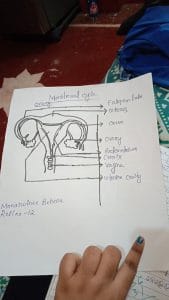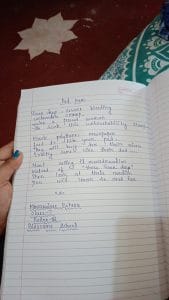India: Meri Body - my body, my choice!
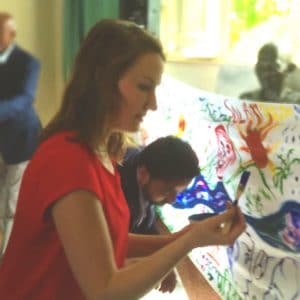
Maria Sakarias
Global Coordinator
At MasterPeace, we believe that every person in the world has a talent, and that everyone should be given an opportunity to develop and use their talents for a more sustainable future. Unfortunately, there are still many girls and women around the world who are held back from fulfilling their potential because of one simple thing – periods. This is why MasterPeace teamed up with Meri Body and started to co-create menstrual health awareness programmes in South Asia. Every woman deserves her dignity and freedom! Period.
In India, having a period is still surrounded by stigma and shame. Women who are menstruating end up excluded from social events and religious celebrations. The shaming takes place at family and community level as well as in schools. Just earlier this year, about 70 female students in Gujarat had to prove to their school principal that they were not on their period – in the 21st century! If a topic is a taboo that nobody dares to talk about, it means that important, health-related information does not get spread either. A report by Dasra showed that 71% of adolescent girls in India are unaware of menstruation before they get it themselves.
How can we confront the stigma and spread more knowledge? How can we make sure that girls are walking around with confidence all the time – and doing what they want, when they want it? How can we ensure that everyone has equal opportunities to create their own future
MasterPeace is working together with Meri Body to offer a solution.
Our solution: technology
Young girls and boys often have a smartphone in their hands and spend endless hours on social media. Clearly, online campaigns can provide an invaluable opportunity for spreading awareness about periods and menstrual health. But that’s not where it stops. Meri Body has launched a mobile app which includes a period tracker combined with science-based information: this allows the user to understand what is happening to their body over the course of the whole cycle. The knowledge is conveyed in short video clips which are translated to local languages. We’re lowering the information barrier.
The app is downloadable for free on Google Play store: find it here.
From online to offline: creating safe spaces
We believe that education is the most important vehicle for reaching out to the youth, and that teachers need to be engaged and empowered so that they can meaningfully facilitate the transformation process. Therefore, we’ve kick-started a collaborative pilot project Blossom School in Bhubaneswar, India, under the mentoring and guidance of Jeevan Reekha Parishad and the Club of MasterPeace India-Odisha.
Every week, for 5 weeks in a row, we have been meeting with a group of Class 7-10 students who come together and share – in a safe space – their period stories. The first sessions were just for breaking ice and to get to know each other. It starts with talking about it – Bolenge nahin toh sunenge kaise. From there, we’ve discussed the pros and cons of different menstrual products, shared tips for reducing discomforts (e.g. pre-menstrual syndrom) and suggested how to approach our mothers, sisters and other family members with the topic. Namita Krul, the CEO of Meri Body, has been facilitating these sessions personally, in order to hear the needs and experiences of the girls first-hand.
We’ve started to break the taboo, one conversation at a time.
What’s next?
During the sessions, we found out that there are so many misconceptions and questions still unanswered. If we don’t dare to speak about the topic, how can reach out if we’re in trouble and facing an actual health issue? Our facilitators’ team heard how some girls are not allowed to touch plants, touch food, open the fridge, visit the temple or even take a bath during the period days. Ridiculous! The mentality of the whole family needs to be changed. This gave us ideas for moving forward.
1. Our aim is that these girls will become empowered and emboldened change agents who will mobilize their sisters, mothers and aunts to attend the sessions. This will create an opportunity for safe and comfortable spaces at home.
2. From there (and if Covid19 allows), the girls will be given the task to go out and share their new knowledge with hard-to-reach and vulnerable communities – urban slums and rural villages – where stigmas and misinformation are even more wide-spread. The trained teachers will be able to guide them in the process.
3. In the spirit of MasterPeace, we have asked the participants to submit essays, poems, drawings or any other creative expressions about their personal experiences with periods. Opening up and sharing has an empowering effect on the creator, and it inspires others to open up as well. We are publishing some of them here (with permission).
We are extremely grateful for the support from the Director of Blossoms School, Nadia Moghbelpour, for guiding us on this journey. Stay tuned for our next steps, together.

